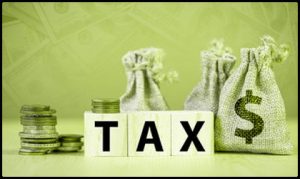Federal sportsbetting excise tax discussed in the United States
[ad_1]
In the United States and several prominent industry figures recently participated in a special webinar in which the nation’s current federal sportsbetting excise tax was discussed at length.
According to a Monday report from the news domain at SportsHandle.com, legislation passed in 1951 levied a 10% tax on all sports wagering revenues as a way to help federal authorities crack down on illegal operations. However, the source detailed that the measure ended up having the opposite and economically damaging effect of forcing all but four of Nevada’s land-based sportsbooks to close.
Distinctly diminished:
Some relief was reportedly received in the early-1970s when concerted industry pressure led to this rate being lowered to 2%. This was purportedly followed in 1982 by a further cut to just 0.25% although a controversial $50 ‘occupational stamp’ on every person employed by a sportsbook remained in place.
Landscape transformation:
Despite these reductions, many in the American sportsbetting sector reportedly still bemoan the presence of the tariff especially following the 2018 revocation of the previous federal prohibition against most sports wagering contained within the Professional and Amateur Sports Protection Act (PASPA). The one-off webinar hosted by industry publisher Sports Betting Community Limited in partnership with the University of Nevada Las Vegas’ Boyd School of Law purportedly heard from several stakeholders including Bill Miller, President and Chief Executive Officer for the American Gaming Association, regarding moves to have this tax annulled or lowered even further.
Communal foe:
Miller reportedly told webinar participants that the industry’s ‘common enemy’ is still offshore sportsbook operators that remain free from any obligations under the federal sportsbetting excise tax. The advocate purportedly also pronounced that ‘it’s time for us to support the legal industry’ by having operators do everything possible to counter ‘both the illegal corner books and the offshore illegal sites’.
Unplanned negatives:
For her part and Dina Titus from the United States House of Representatives reportedly told listeners that the original aim of the excise tax was to help reign in illegal gambling but that no-one knows the final destination of the collected funds. The Nevada Democrat purportedly pronounced that the tariff’s associated ‘head tax’ has moreover had the unintended effect of discouraging sportsbooks from bringing back workers laid off during the coronavirus pandemic.
Titus reportedly told participants…
“This is like putting a tax on illegal whiskey stills. We still have trouble in Washington, DC, with the old and negative images of gaming. Reduce the tax on gaming, ‘Oh that’s a sin’. So, it’s a hard sell.”
Pending plan:
Nevertheless, the suburban Las Vegas representative reportedly disclosed that she worked with Republican counterpart Guy Reschenthaler last month in order to put forward legislation that would completely repeal the excise tax. She purportedly proclaimed that this measure is of the ‘stand-alone’ variety and may have some hope of getting passed ‘if we can get it put into a recovery package or in Ways and Means or one of those ‘Christmas tree’ packages’.
[ad_2]
Source link
